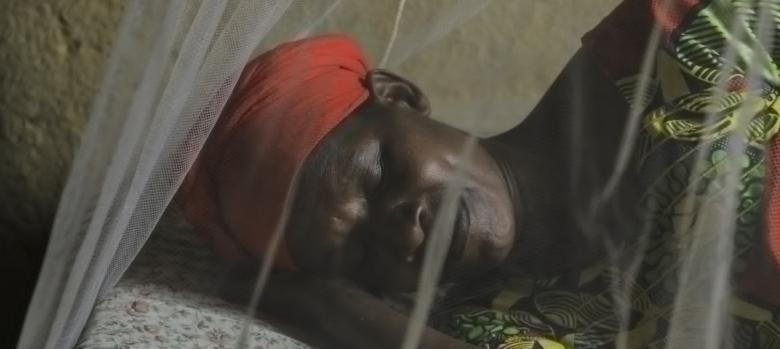Africa-Press – Rwanda. A new malaria control strategy launched in April has started to bear fruits as health officials report to have detected at least 30 per cent of new cases that had not been reported to health facilities or shown any symptoms of the tropical disease.
Rwanda launched the new community-based malaria control strategy in response to a rise in infections after more than 800,000 cases were recorded nationwide since the beginning of 2024, according to the Rwanda Biomedical Center (RBC).
The approach, known as reactive case detection, involves tracing members of a household that has a person diagnosed with malaria, known as the index case. Household members are tested for the parasite, even if they show no symptoms.
Speaking to The New Times, Dr Aimable Mbituyumuremyi, the Division Manager for Malaria and Neglected Tropical Diseases at RBC, that household members found positive are treated immediately.
Rwanda recorded 94,000 malaria cases in April, according to Mbituyumuremyi, who explained that the rise was driven by seasonal rainfall. He noted that April, May and June see an increase in transmissions due to the accumulation of stagnant water, which is breeding grounds for mosquitoes.
“From the household members we have tested, we detected an additional 30 percent of people who had the infection but had not visited any health facility,” he said. “Some of them had no symptoms at all, but they were carrying the malaria parasite and could potentially transmit it to others.”
“We test and treat the cases on the same day. If you are positive, you are given drugs,” Mbituyumuremyi said.
He noted that the strategy, which was launched in Kigali has since been extended to other districts, including Gisagara, Bugesera, and Nyagatare, since they are areas identified with persistently high malaria burdens.
In March alone, he said, Gasabo District recorded the highest number of cases at over 13,000, followed by Gisagara with 11,000 and Kicukiro with 9,000. Half of Rwanda’s 30 districts accounted for 85 percent of all malaria cases recorded in March.
Dr. Mbituyumuremyi explained that although the intervention is recent, the impact is already visible in terms of increased case detection.
“People might expect a decrease, but in the short term, what we observe is an increase in the number of reported cases because we are now identifying even asymptomatic individuals who previously would not have sought treatment.”
He noted that the goal is not tied to a specific target, but rather a continuous effort focused on reducing malaria transmission over time.
“We don’t have a fixed number of people to test; instead, we follow every index case in high-burden areas and test all household members to ensure those infected receive prompt treatment. So far, health workers have been able to test 70 percent of the members of affected households in Kigali,” Dr. Mbituyumuremyi stated.
He added that finding all household members at home during visits has been challenging. However, the teams collaborate closely with local leaders to raise awareness and encourage people to be available for testing when health workers come.
“Among the challenges encountered since the strategy was launched is the heavy workload on community health workers, who now have to go door-to-door instead of attending to patients at their own homes or waiting for them at health posts. Moving from house to house is not an easy task as it takes a lot of time and energy,” Dr. Mbituyumuremyi said.
In areas like Kigali, where residents may be away from home during the day, it becomes even more difficult to reach everyone, and community health workers often have to return multiple times.
He also highlighted a challenge of reluctance from people who test positive but have no symptoms, noting that some people refuse to take the medication because they believe they are not sick.
“We take time to explain to them that even without symptoms, they can still transmit malaria to their family members, but convincing them isn’t always easy,” he said.
According to RBC, malaria cases had declined from 4.8 million in 2016/2017 to 620,000 in the 2023/2024 fiscal year. However, a resurgence in 2024 that saw over 802,000 cases reported, prompted renewed efforts to combat the disease.
He called on the public to strengthen malaria prevention efforts by using insecticide-treated bed nets, participating in indoor residual spraying, eliminating mosquito breeding sites, and seeking prompt treatment.
“Malaria is still a killer disease,” said the official. “We continue to record high numbers every month, which means the fight is not over. By detecting and treating more cases, we gradually reduce the number of infected people. Over time, this will lead to a decline in malaria cases.”
For More News And Analysis About Rwanda Follow Africa-Press






